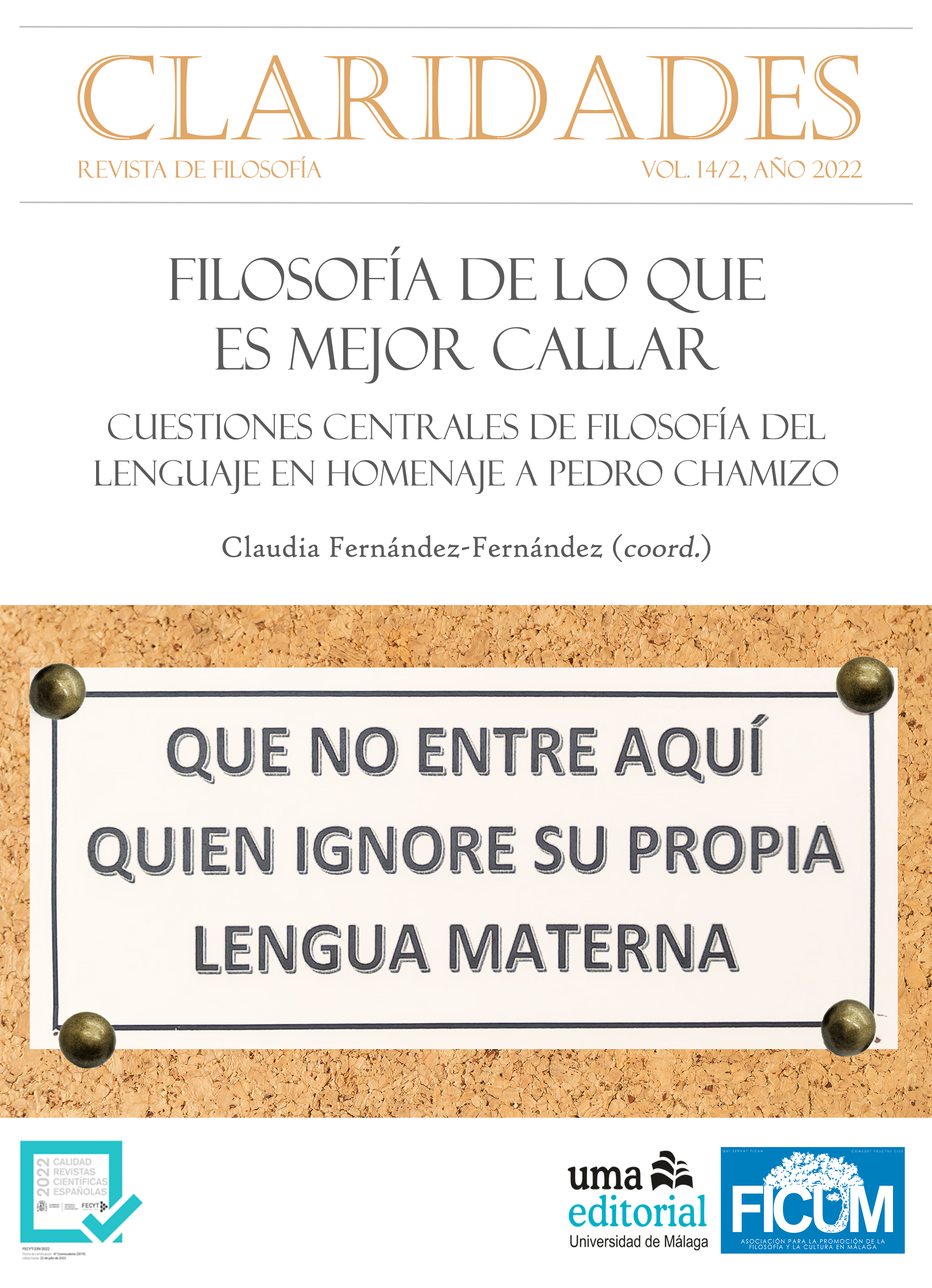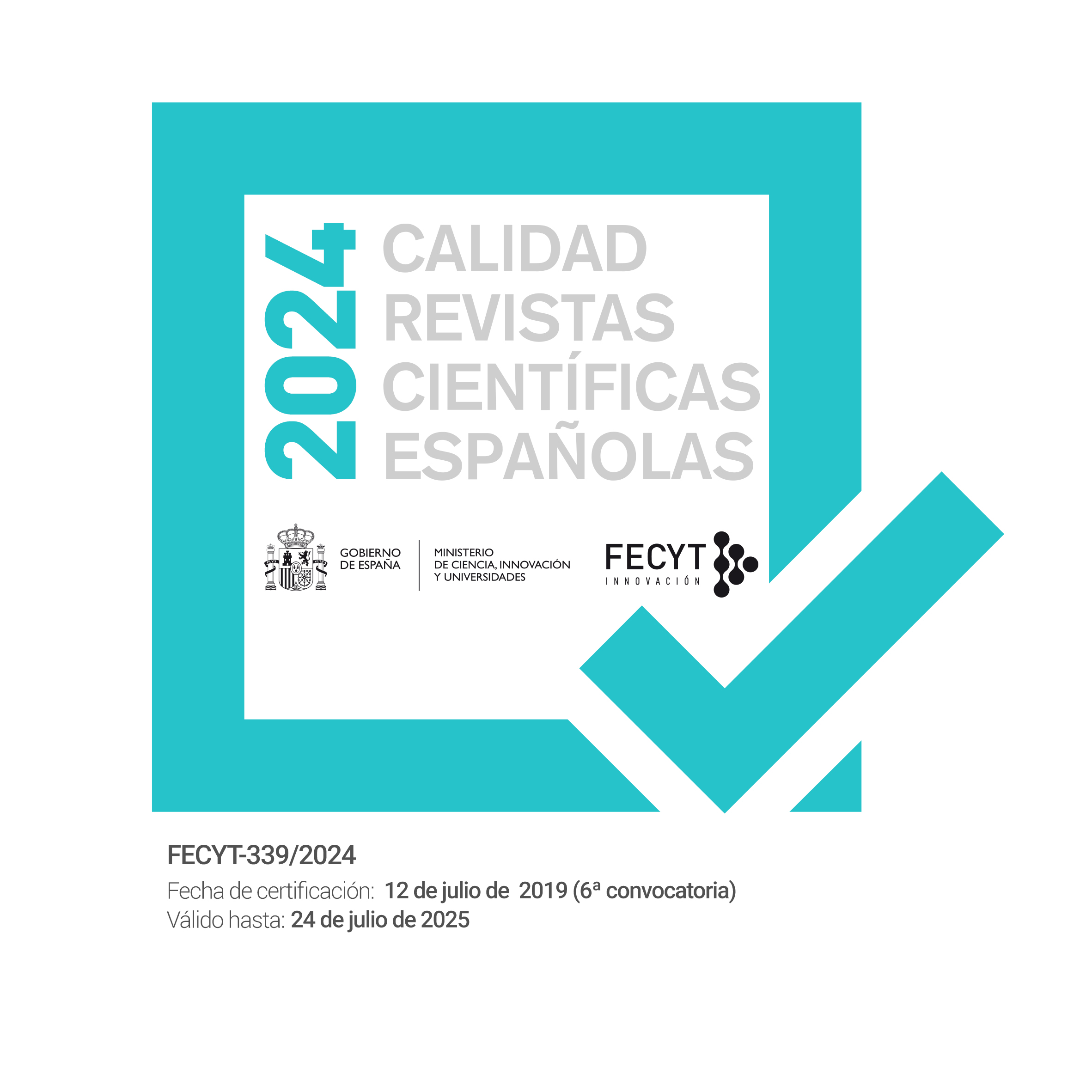Language and its discontents
el falso enemigo
DOI:
https://doi.org/10.24310/Claridadescrf.v14i2.13577Keywords:
Buddhism, False enemies, False friends, Forgeting, Hbrew Bible, Islam, LanguageAbstract
The concept of false friends suggests that language is essentially misleading. Words seem to be similar to each other, but in fact often are not. This is an aspect of the general view in philosophy and religion that language is confusing. There is scope for linking the concept of false friends with the idea of false enemies, where terms appear to be opposite to each other and yet perhaps are not as polarized in reality. In fact, it is sometimes argued that we forget how things are really linked up. So we are typically frightened and upset by death, yet it is sometimes argued that it is unreasonable to see it as something to which we ought to be opposed. Death is a false enemy and the language that surrounds it acts to point us in erroneous directions. It is suggested that just as language is replete with false friends, false enemies may also be a significant feature. The result is to reinforce the thesis that language has to be approached with caution.
Downloads
Metrics
Publication Facts
Reviewer profiles N/A
Author statements
Indexed in
-
—
- Academic society
- N/A
- Publisher
- Asociación para la promoción de la filosofía y la cultura en Málaga (FICUM) y UMAEditorial
References
Chamizo-Domínguez, Pedro J. (2008): Semantics and Pragmatics of False Friends. Abingdon: Routledge.
Lattimore, Richard (1970): Greek Lyrics. Chicago: University of Chicago Press.
Leaman, Oliver (2011): Islamic Philosophy. Oxford: Wiley.
Levinas, Emmanuel (1996): Emmanuel Levinas: Basic Philosophical Writings, Adriaan Peperzak, Simon Critchley, and Robert Bernasconi, eds. Bloomington, IN: Indiana University Press.
Watson, Burton, trans. (1968): The Complete Works of Chuang Tzu. New York: Columbia University Press.
Zhuangzi (1956): Zhuangzi Yinde ????Concordance to Zhuangzi). Harvard-Yenching Institute Sinological Index Series, no. 20 (Suppl). Cambridge: Harvard University Press.
Downloads
Published
How to Cite
Issue
Section
License
Esta revista provee acceso libre inmediato a su contenido bajo el principio de hacer disponible gratuitamente la investigación al público. Todos los contenidos publicados en Claridades. Revista de Filosofía, están sujetos a la licencia Creative Commons Reconocimento-NoComercia-Compartirigual 4.0 cuyo texto completo puede consultar en <http://creativecommons.org/licenses/by-nc-sa/4.0>
Es responsabilidad de los autores/as obtener los permisos necesarios de las imágenes que están sujetas a derechos de autor.
Los autores/as cuyas contribuciones sean aceptadas para su publicación en esta revista conservarán el derecho no exclusivo de utilizar sus
contribuciones con fines académicos, de investigación y educativos, incluyendo el auto-archivo o depósito en repositorios de acceso abierto de cualquier tipo.
La edición electrónica de esta revista esta editada por la Editorial de la Universidad de Málaga (UmaEditorial), siendo necesario citar la procedencia en cualquier reproducción parcial o total.

















6.png)
